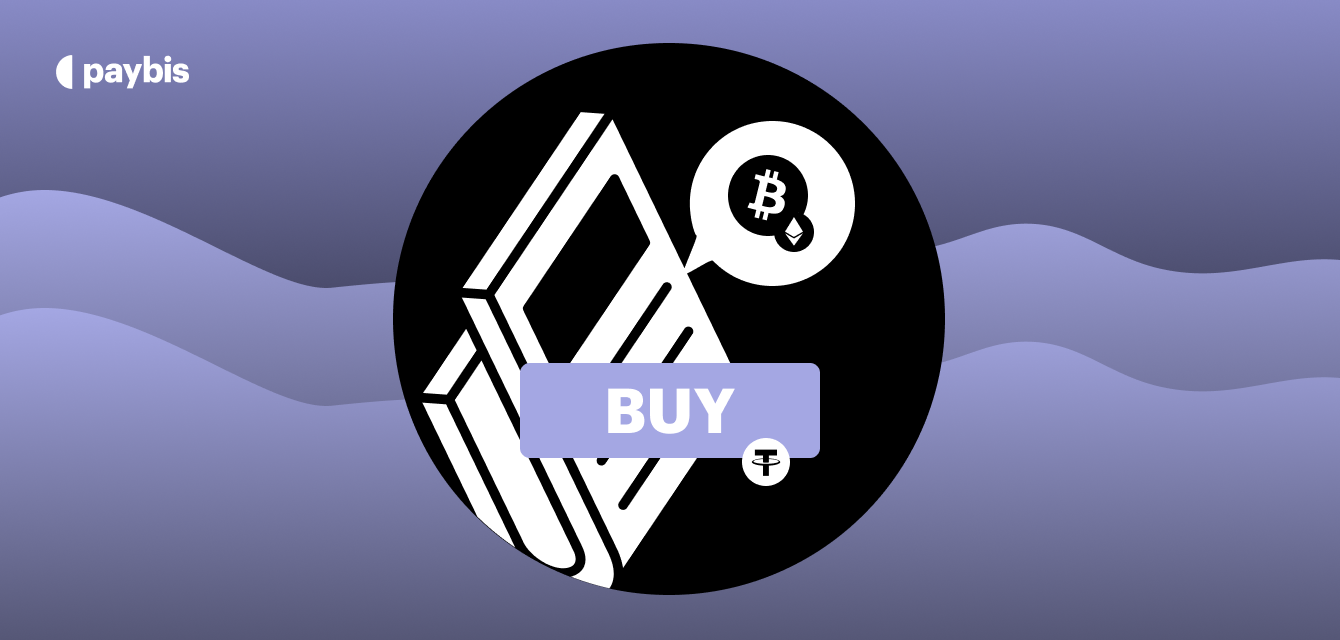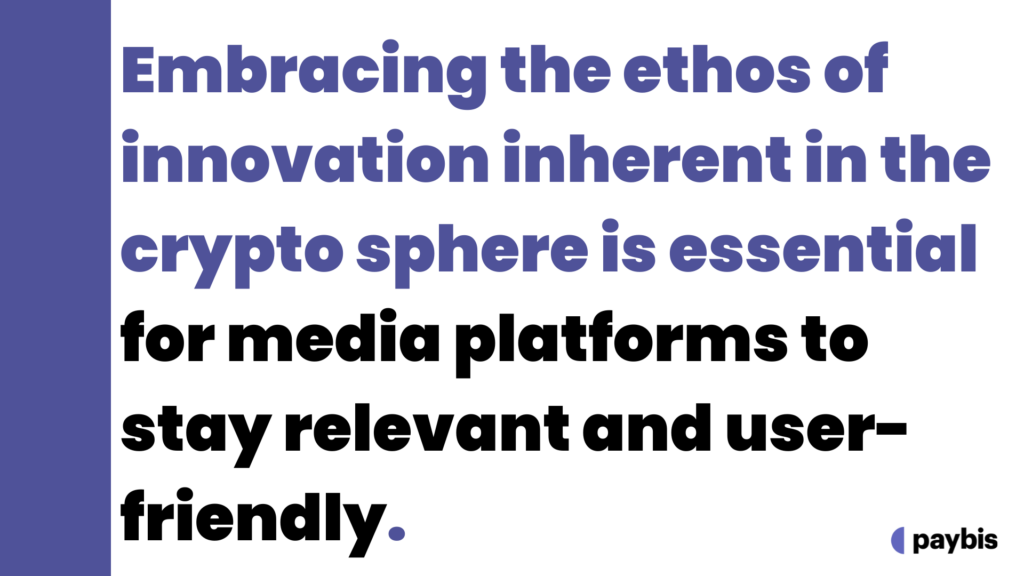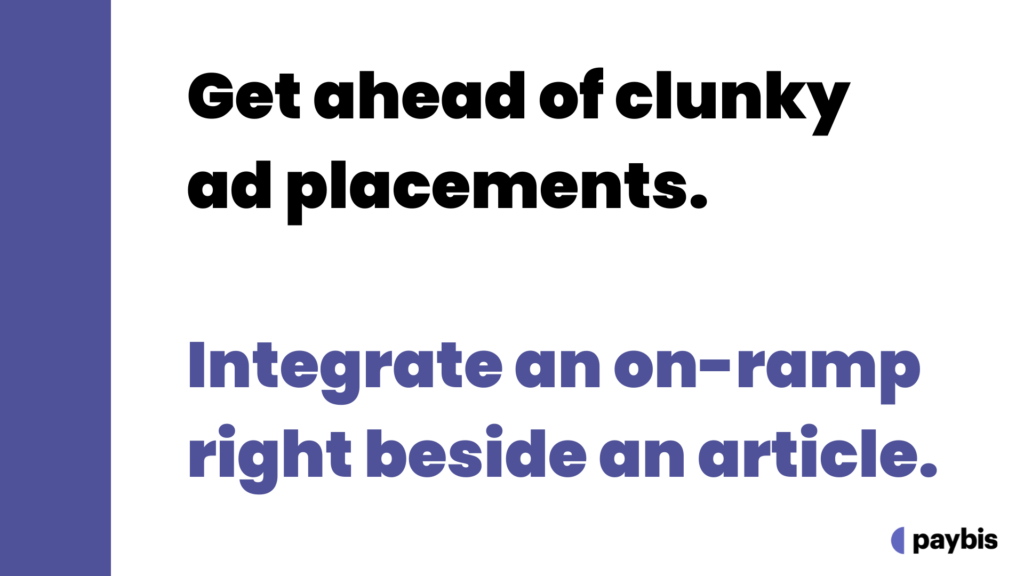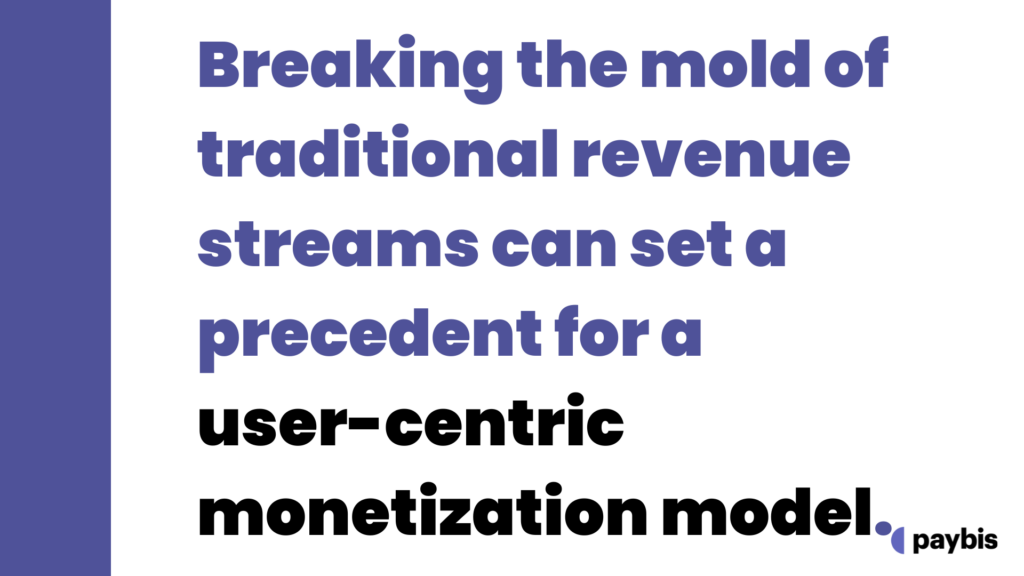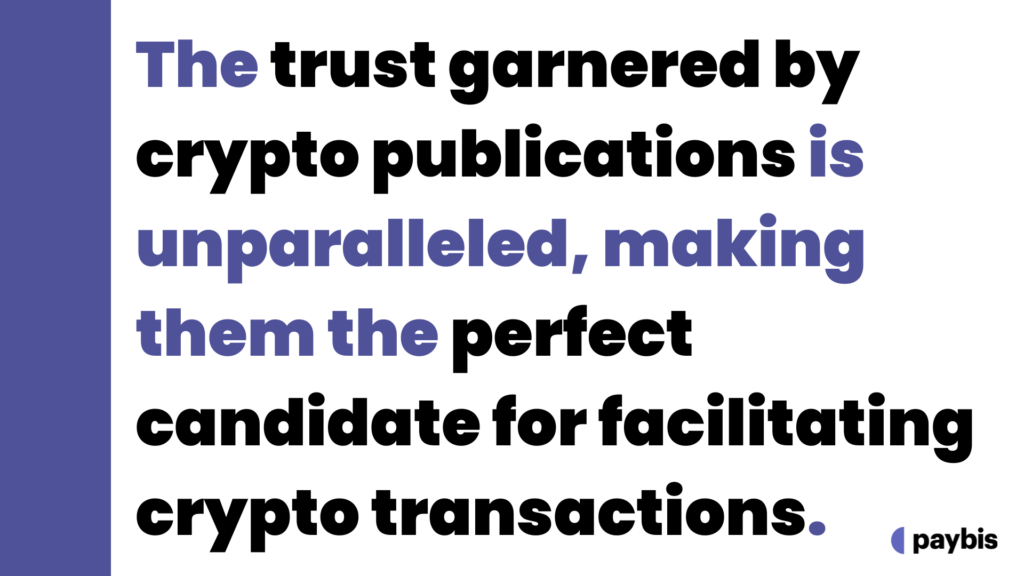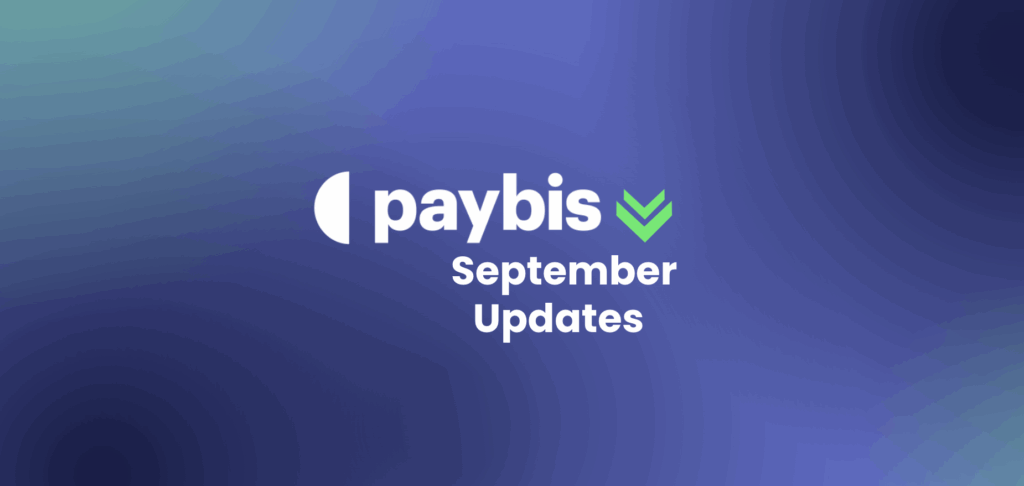From News to Action: Direct Crypto Transactions on Media Platforms
There’s a rampant increase in content production by product-led websites. Yet, cryptocurrency publications still stand tall as a reliable source of up-to-date information.
Their analyses and insights foster an informed community of crypto enthusiasts, whose buying and selling decisions are often significantly swayed by the news they consume.
While these platforms have been pivotal in spreading cryptocurrency knowledge, they also harbor the potential for a new revenue stream that could benefit both the user and the publication.
The conventional revenue stream for most publications, i.e., web page advertisements, is often irksome and detracts from the user experience (UX). Introducing a feature that enables direct crypto transactions on these platforms could open up a revenue avenue that is as useful as it is innovative.
This transition from merely informing to enabling transactions could mark a paradigm shift in how crypto media platforms operate and monetize. This would make the user’s journey from reading about a cryptocurrency to buying it seamless and straightforward.
Table of contents
The Missing Link: Transitioning from Information to Transaction
Why should crypto publications tether themselves to conventional methods when the very subject they cover is groundbreaking technological and financial shifts?
The revenue models of crypto media platforms have largely followed the traditional pathways of sponsored posts and advertisements.
However, in web3, where decentralization and user-centric models are heralded, clinging to these web2 monetization tactics seems displaced or even desperate!
The essence of a good user experience (UX) lies in the undivided attention of the reader. Every ancillary element on the page, like ads, is a potential distraction that could lead to a dent in the revenue through reduced engagement or traffic.
The need for innovation in monetization strategies is apparent.
The Proposal
The proposal is to integrate on-ramp solutions directly within the media platforms, creating a seamless bridge between reading about a cryptocurrency and buying it.
This integration could be the linchpin for transitioning from a mere information-dispensing entity to a transaction-enabling platform.
On-ramp services provide the much-needed infrastructure for users to buy cryptocurrencies effortlessly.
By integrating an on-ramp right within the publication, readers won’t have to traverse the digital wilderness to find a separate platform to make a purchase. They can read about a cryptocurrency and buy it right there, all within the same user interface.
This not only enriches the user experience but also opens up a new revenue stream for the publications, aligning perfectly with the ethos of innovation and user-centricity that web3 evangelizes.
Bridging the Gap with Paybis Integration
The notion of direct crypto transactions on media platforms is not just about any on-ramp, but the right on-ramp.
Paybis stands out as a viable solution for this integration, given its streamlined and user-friendly interface. By embedding Paybis as the on-ramp within the publication platform, a practical, streamlined experience is forged for the users, facilitating their journey from information acquisition to transaction execution.
This integration could potentially alleviate the heavy reliance on advertisements for revenue generation.
While publications can still opt to host ads, the Paybis integration grants them a leeway to explore a more user-centric monetization strategy.
The flexibility that Paybis offers can be a game changer, allowing publications to tailor the user experience to a fine balance between information provision, transaction facilitation, and ad monetization.
The Paybis integration doesn’t just stop at enhancing the user experience; it presents a novel avenue for revenue that is mutually beneficial. By reducing the friction usually associated with transitioning from a media platform to a separate transaction platform, Paybis ensures that users can effortlessly make transactions without leaving the publication site.
This ease of transaction, coupled with a reduction in intrusive advertisements, could lead to a higher user retention rate and, consequently, a broader revenue base for the crypto media platforms.
Useful links
Real-World Application
The theoretical benefits of integrating direct crypto transaction capabilities on media platforms are compelling, yet their real-world application is what truly underscores their value.
Renowned publications like Cointelegraph, Coindesk, Decrypt, BeInCrypto, and Blockworks stand as potential pioneers in embracing this innovative approach. Lesser-known publications can get ahead of larger competitors by embracing such innovations.
By implementing the Paybis on-ramp, these platforms can offer a seamless conduit from cryptocurrency education to transaction, enriching the user journey.
Exploring the implementation avenues, these platforms could embed the Paybis on-ramp in a variety of ways — be it alongside articles, within cryptocurrency price tracking pages, or even as a dedicated section.
The flexibility of the Paybis integration allows for a tailored approach to suit the unique user base and editorial style of each publication. Publications can customize multiple facets of the integration — from branding to the fees levied for individual cryptocurrencies.
For users, the ease of transaction, reduced reliance on external platforms for purchases, and a more engaging user experience are clear wins. On the flip side, the platforms themselves stand to benefit from a diversified revenue stream, reduced dependence on ad revenue, and enhanced user retention and engagement.
Further, this could be a significant step toward redefining the monetization models and user engagement strategies in the crypto media domain, making the leap from information dissemination to enabling action.
Here’s a look at a few hypothetical situations.
Hypothetical Situation 1: Cointelegraph Integrates Paybis On/Off-Ramp
According to Ubersuggest, Cointelegraph has a monthly organic traffic of over 2.7 million visitors from the United States.
Assuming 2% of readers/visitors transact via an integrated on-ramp, like Paybis, and an average order value (AOV) of $100.
Further, assuming a 5% fee on every order, the monthly revenue would be $270,000.
Hypothetical Situation 2: Blockworks Integrates Paybis On/Off-Ramp
According to Ubersuggest, Blockworks has a monthly organic traffic of over 163.8k visitors from the United States.
Assuming 2% of readers/visitors transact via an integrated on-ramp, like Paybis, and an average order value (AOV) of $100.
Further, assuming a 5% fee on every order, the monthly revenue would be $16,380.
Hypothetical Situation 3: Coindesk Integrates Paybis On/Off-Ramp
According to Ubersuggest, Coindesk has a monthly organic traffic of over 14 million visitors from the United States.
Assuming 5% of readers/visitors transact via an integrated on-ramp, like Paybis, and an average order value (AOV) of $100.
Further, assuming a 5% fee on every order, the monthly revenue would be $1.4 million.
Conclusion
The journey from being informed to taking action is a crucial aspect of the crypto enthusiast’s experience.
Crypto media platforms have long stood as bastions of information, guiding decisions in the dynamic and often tumultuous world of cryptocurrencies. However, the time is ripe for these platforms to evolve beyond mere informers to enablers of action.
Integrating direct crypto transaction facilities, such as the Paybis on-ramp, within the media platforms, presents a groundbreaking approach to enrich the user experience while simultaneously broadening the revenue horizons for the publications.
The blend of information and transactions within the same platform could very well be the hallmark of a new era in crypto media, fostering a more engaged and action-oriented community.
Disclaimer: Don’t invest unless you’re prepared to lose all the money you invest. This is a high‑risk investment and you should not expect to be protected if something goes wrong. Take 2 mins to learn more at: https://go.payb.is/FCA-Info
